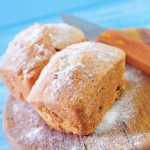Are you interested in pursuing a career as a cake decorator? What skills do you need to be a cake decorator? The art of cake decorating has seen a surge in popularity in recent years, leading to an increased demand for skilled professionals in the industry.
As more and more people seek out custom-designed cakes for special occasions, the need for talented cake decorators continues to grow. In this article, we will explore the essential skills and qualities necessary to embark on a successful career in cake decorating.
With the rise of social media and the desire for unique and personalized celebrations, cake decorating has become an in-demand specialty within the baking industry. As individuals and businesses alike look for beautifully crafted and delicious cakes, there is a growing need for skilled cake decorators who can bring their creative visions to life.
Whether you are considering starting your own cake decorating business or pursuing a career in a bakery, having the right skills and attributes will be crucial to your success.
Beyond just being able to create visually stunning cakes, there are several key skills and qualities that aspiring cake decorators should possess. From a genuine passion for baking and creativity to strong time management and organizational abilities, the path to becoming a proficient cake decorator involves developing a diverse set of competencies. By understanding the essential skills needed for this profession, individuals can better prepare themselves for a fulfilling career in cake decorating.
Passion for Baking and Creativity
To be a successful cake decorator, it’s essential to have a genuine passion for baking and a natural creative flair. A love for baking provides the foundation for creating delicious and visually appealing cakes, while creativity allows decorators to come up with unique designs that set them apart in the industry.
Whether it’s experimenting with new flavors, designing intricate decorations, or conceptualizing themed cakes, having a passion for baking and creativity is what sets apart exceptional cake decorators from the rest.
In addition to having an eye for design, successful cake decorators also possess strong attention to detail. Creating beautiful and personalized cakes often involves intricate details such as hand-piped designs, delicate fondant work, and precise color coordination. Meticulous attention to detail ensures that every element of the cake is expertly crafted, resulting in a stunning finished product that exceeds client expectations.
Furthermore, being knowledgeable about various ingredients, baking techniques, and cake decorating tools is crucial. Cake decorating requires an understanding of different types of frosting, fondant, edible decorations, and other ingredients used in baking. Knowledge of baking techniques such as layering, sculpting, and airbrushing is also important for bringing creative concepts to life. Additionally, familiarity with tools such as piping bags, spatulas, edible paints, and sculpting tools enables decorators to execute their designs with precision.
Attention to Detail
Being a successful cake decorator requires more than just a passion for baking and creativity; it also demands a high level of attention to detail. The ability to be meticulous and detail-oriented is crucial when executing intricate cake designs that require precision and accuracy. Whether it’s piping delicate floral designs, creating intricate patterns, or sculpting fondant decorations, every aspect of the cake decorating process requires careful attention to detail.
To excel in the field of cake decorating, individuals need to pay close attention to the finer points of their designs, from precise measurements of ingredients to the intricacies of intricate piping work. A keen eye for detail is essential when working with delicate materials such as fondant and gum paste, as even the smallest imperfection can greatly impact the overall appearance of the finished cake.
In addition to visual details, meticulousness extends to other aspects of cake decorating such as flavor combinations, ensuring that each layer of the cake is perfectly level, and achieving consistent texture throughout the entire dessert. Achieving perfection in these areas not only enhances the visual appeal but also contributes to an overall enjoyable eating experience for the customers.
- Measuring ingredients accurately
- Precise piping techniques
- Consistent texture and layering
- Visual symmetry and balance
Knowledge of Ingredients and Techniques
When it comes to being a successful cake decorator, having a comprehensive knowledge of ingredients and techniques is essential. Whether it’s understanding the different types of flour and their impact on texture, learning how to properly whip up egg whites for a light and airy cake, or mastering the art of piping intricate designs with various frosting consistencies, a solid grasp of baking techniques and ingredients is crucial.
Additionally, knowing how to utilize cake decorating tools such as piping bags, tips, and fondant molds is also vital in creating visually stunning cakes.
Understanding Ingredients
To excel in cake decorating, it’s important to have a deep understanding of various ingredients used in baking. This includes knowing the role of each ingredient in a recipe, understanding how they interact with one another, and being familiar with their individual properties. For example, knowing the difference between baking soda and baking powder and when to use each can drastically affect the outcome of a cake.
Baking Techniques
A skilled cake decorator should be well-versed in different baking techniques such as creaming butter and sugar for light and fluffy cakes, properly folding in delicate ingredients like whipped egg whites or incorporating air into batter through the creaming method. These techniques are essential for creating cakes with optimal texture and flavor.
Cake Decorating Tools
In addition to mastering baking techniques and understanding ingredients, proficiency with cake decorating tools is paramount. This entails being proficient in using piping bags for precision decorating, utilizing various tips to create different designs, working with fondant for sculpting intricate shapes and figures, as well as employing other specialty tools like edible luster dusts or stencils.
In summary, having an adept understanding of various ingredients, baking techniques, and cake decorating tools is fundamental for any aspiring cake decorator. This knowledge not only enables decorators to produce visually stunning cakes but also ensures that their creations are equally delectable.
Time Management and Organization
In the world of cake decorating, it is not uncommon for decorators to juggle several orders at once, especially during peak seasons such as wedding and holiday celebrations. Being able to manage time effectively means being able to estimate how long each project will take, allocating enough time for each step of the cake decorating process, and ensuring that all orders are completed on schedule.
Without proper time management skills, a cake decorator may struggle to deliver cakes on time, which could significantly impact their reputation and potential for future business.
Furthermore, organizational abilities play a key role in handling multiple orders and projects simultaneously. This includes having a well-maintained workspace, keeping track of all ongoing orders, coordinating with suppliers for ingredients and materials, and managing administrative tasks such as invoicing and customer communication. A lack of organization can lead to confusion, mistakes, and ultimately dissatisfied customers. Therefore, strong organizational skills are essential for success in the competitive industry of cake decorating.
| Skills | Description |
|---|---|
| Time Management | To prioritize tasks effectively and meet deadlines |
| Organizational Abilities | To maintain order in a busy working environment |
Adaptability and Problem-Solving
To be a successful cake decorator, it is essential to possess a variety of skills that go beyond just the ability to bake and make beautiful designs. One of the most important skills needed in this industry is adaptability and problem-solving. It is crucial to be able to adjust to different client preferences and find creative solutions to any challenges that may arise during the cake decorating process.
Here are some key skills related to adaptability and problem-solving for aspiring cake decorators:
- Flexibility in design: Being able to adapt your designs based on the specific requests and preferences of clients is essential. Whether it’s incorporating certain themes, colors, or styles, the ability to be flexible and adjust your creative vision is a valuable skill.
- Quick thinking: When facing unexpected challenges during the cake decorating process, such as a design flaw or an ingredient mishap, the ability to think quickly on your feet and come up with effective solutions is crucial.
- Openness to feedback: As a cake decorator, receiving feedback from clients and being open to making changes or adjustments based on their input is important. This requires good communication skills and a willingness to collaborate with clients to achieve their desired results.
Overall, being adaptable and having strong problem-solving skills are essential for success in the cake decorating industry. By embracing flexibility, thinking quickly, and being open to feedback, aspiring cake decorators can navigate through various challenges while delivering exceptional results for their clients.
Customer Service and Communication
Building Strong Client Relationships
Building strong and positive relationships with clients is a crucial part of being a successful cake decorator. This involves effective communication, active listening, and understanding the client’s vision for their cake. A good cake decorator should be able to ask the right questions to understand the client’s needs, preferences, and any specific requirements they may have for the design of their cake.
Managing Client Expectations
It is important for a cake decorator to manage client expectations effectively. This includes being transparent about what can be achieved within the given budget and timeframe. It also involves providing realistic timelines for delivery and ensuring that the client understands the limitations and possibilities in terms of design and execution.
Providing Excellent Customer Service
Customer service plays a significant role in the success of a cake decorating business. Responding promptly to inquiries, providing clear information about pricing, delivery options, and policies, as well as addressing any concerns or issues with professionalism are all essential components of excellent customer service. Additionally, showing appreciation for clients through thoughtful gestures such as thank you notes or follow-up communication after the completion of an order can go a long way in building customer loyalty and positive referrals.
Overall, customer service and communication skills are crucial for a successful career as a cake decorator. By effectively communicating with clients, understanding their needs, and providing excellent customer service throughout the cake decorating process, you can build a solid reputation in the industry and create lasting connections with your clientele.
Business and Marketing Skills
To successfully establish and grow a career as a cake decorator, it is essential to have not only exceptional baking and design skills but also a solid understanding of basic business and marketing concepts. In order to effectively promote and sell your cake decorating services, you must be able to develop a business plan, set pricing strategies, manage finances, and handle customer relationships.
Additionally, having knowledge of marketing techniques will enable you to reach potential clients and build a strong brand presence in the industry.
One of the key aspects of possessing business skills as a cake decorator is the ability to create a comprehensive business plan. This includes setting realistic goals for your business, identifying your target market, outlining your service offerings, and developing strategies for growth. A well-thought-out business plan provides direction and serves as a roadmap for success in the competitive cake decorating industry.
In addition to creating a business plan, cake decorators must understand how to effectively price their products and manage finances. This involves calculating the cost of ingredients, determining appropriate labor costs, setting prices that are competitive yet profitable, and keeping track of expenses and income. By having a clear understanding of these financial aspects, cake decorators can ensure the sustainability of their businesses while providing high-quality products to their customers.
Having strong marketing skills is equally important when it comes to promoting cake decorating services. Whether it’s through social media, website development, or traditional advertising methods, being able to effectively market your work is crucial in attracting new customers and retaining existing ones. Understanding how to identify target audiences, create compelling promotional materials, and engage with potential clients can greatly impact the success of a cake decorating business.
Continuous Learning and Skill Improvement
To be a successful cake decorator, it is essential to possess a diverse set of skills that go beyond just the ability to create visually stunning cakes. From a genuine love for baking and creativity to impeccable attention to detail, the art of cake decorating requires dedication and passion.
This article has explored the various skills needed to excel in this industry, from time management and adaptability to business and marketing knowledge. But one skill that cannot be overlooked is the need for continuous learning and skill improvement.
In an ever-evolving industry like cake decorating, staying updated on the latest trends, techniques, and technologies is crucial. As new decorating tools and methods continue to emerge, it is important for cake decorators to invest time in expanding their knowledge and honing their skills.
Whether it’s through workshops, online courses, or simply keeping up with industry publications, continuous learning allows decorators to bring fresh ideas and innovative designs to their clients. By staying ahead of the curve, cake decorators can position themselves as experts in their field and attract more business opportunities.
Furthermore, continuous learning not only enhances technical skills but also fosters creativity. It opens up possibilities for experimenting with new ingredients, flavors, and design concepts. Embracing ongoing education allows cake decorators to push boundaries and offer unique creations that set them apart from competitors. In an industry driven by visual appeal and innovation, this commitment to skill improvement can be a game-changer for any aspiring or established cake decorator.
In conclusion, mastering the art of cake decorating requires a combination of skills ranging from creativity and attention to detail to communication and business acumen. However, one should never underestimate the power of continuous learning and skill improvement in this competitive field.
By embracing a mindset of lifelong learning, cake decorators can adapt to changing preferences, delight clients with cutting-edge designs, and ultimately thrive in an industry that values expertise and originality. So if you’re wondering what skills you need to be a successful cake decorator – don’t forget about the importance of continuous learning.
Frequently Asked Questions
What Education Is Needed for Cake Decorating?
Some cake decorators start their career with a high school diploma and then pursue formal education like an associate or bachelor’s degree in baking and pastry arts. Courses in cake decorating, food safety, and nutrition can also be beneficial.
What Does a Beginner Cake Decorator Need?
A beginner cake decorator will need essential tools such as offset spatulas, piping bags and tips, a turntable, a bench scraper, and a good quality mixer. Basic ingredients like fondant, buttercream, and food coloring are also crucial.
What Are the 7 Different Cake Decorating Techniques?
There are seven fundamental cake decorating techniques: frosting a smooth buttercream layer, creating sharp edges with fondant, piping borders and designs with royal icing or buttercream, using fondant to create shapes and figures, painting on cakes with edible colors, creating textures with different tools, and airbrushing for a smooth finish or special effects.

Welcome to my blog about home and family. This blog is a place where I will share my thoughts, ideas, and experiences related to these important topics. I am a stay-at-home mom with two young children. I hope you enjoy reading it! and may find some helpful tips and ideas that will make your home and family life even better!





